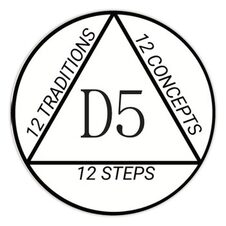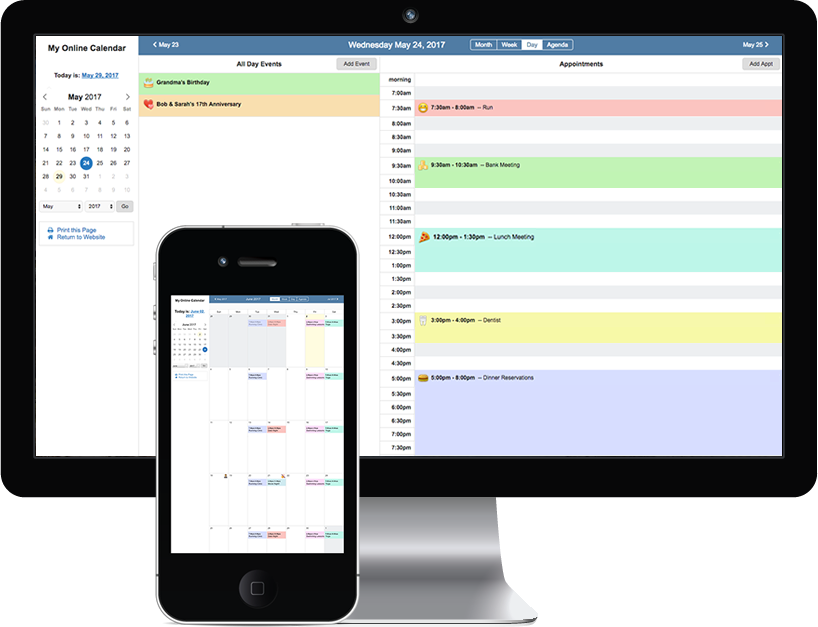What is Alcoholics Anonymous?
For The Newcomer
The Preamble of Alcoholics Anonymous
"Alcoholics Anonymous is a fellowship of people who share their experience, strength and hope with each other that they may solve their common problem and help others to recover from alcoholism. The only requirement for membership is a desire to stop drinking. There are no dues or fees for A.A. membership; we are self- supporting through our own contributions. A.A. is not allied with any sect, denomination, politics, organization or institution; does not wish to engage in any controversy, neither endorses nor opposes any causes. Our primary purpose is to stay sober and help other alcoholics to achieve sobriety."
How To Get Started
The main focus for a newcomer is to simply attend meetings of Alcoholics Anonymous. This is the easiest and fastest way to meet other's who have had drinking problems and have recovered from the disease...one day at a time. We have meetings morning, noon and night throughout Central Oregon.
If you're new to A.A., and feel you may have a problem with alcohol, and would like to quit drinking for good, we suggest acquiring these three things right away...
-
The Book "Alcoholics Anonymous" - The first 164 pages of this book, is the program of recovery in A.A. Most A.A. meetings will have these books for sale at cost for $9.50
-
Sponsor - This is someone who will help you to get started and take you through the book/program of A.A. (There is no one way to get a sponsor. Just ask someone.)
-
A Home Group - Members usually attend a variety of different meetings, but have one Home Group. The "Home Group" is where AA Members accept service responsibilities, acquire accountability, and try to sustain friendships. By joining a registered group, and attending the monthly business meetings, comes the right to vote upon issues that affect your group, as well as AA as a whole.
There are additional reading materials that we use to learn how to live without alcohol and can be purchased at most local A.A. meetings. These include:
- The book "Alcoholics Anonymous": (The Big Book) The first 164 pages in this book is our basic text and is A.A.s program of recovery.
- Alcoholics Anonymous Comes Of Age: Bill W. (A.A. Co-founder) Tells The History of A.A. and The Three Legacies. This is where the 12 Traditions can be studied.
- Language Of The Heart: All of AA co-founder's Grapevine articles, including a vivid description of how he came to organize the steps. (This is a Grapevine publication and can not be found on AAWS)
- Twelve Steps and Twelve Traditions: A co-founder of Alcoholics Anonymous writes 24 essays sharing his experience with 24 of our 36 spiritual principles.
- As Bill Sees It: A collection of Bill W.’s writings addressing themes such as fear, gratitude and spirituality.
- Dr. Bob and The Good Old-Timers: A biography with recollections of the early A.A. in the Midwest.
- ‘PASS IT ON’: The Story of Bill Wilson and How the A.A. Message Reached the World.
Here is some additional information newcomers have found useful:
- Is A.A. for you?
- Problems Other Than Alcohol
- FAQs about A.A.
- Is there an alcoholic in your life?
- Questions and Answers On Sponsorship
As part of your ongoing recovery, you may start taking more active roles within your Home Group. This may include making coffee, being a group leader, a secretary, a treasurer and so on. This is a great way of giving back to those who came before us. Commitments in your group is another key component of maintaining sobriety.
The Difference Between Open And Closed A.A. Meetings
The purpose of all A.A. group meetings, as the Preamble states, is for A.A. members to “share their experience, strength and hope with each other that they may solve their common problem and help others to recover from alcoholism.” Toward this end, A.A. groups have both open and closed meetings.
WHAT IS A CLOSED A.A. MEETING?
Closed Meetings are for A.A. members only, or for those who have a drinking problem and “have a desire to stop drinking.”
WHAT IS AN OPEN A.A. MEETING?
Open Meetings are available to anyone interested in Alcoholics Anonymous’ program of recovery from alcoholism. Non-alcoholics may attend open meetings as observers.
-Page 13 AA Group Pamphlet
More About Alcoholics Anonymous
A.A. Primary Purpose*
The primary purpose of any A.A. group is to carry the A.A. message to alcoholics. Experience with alcohol is the one thing all A.A. members have in common. It is misleading to hint or give the impression that A.A. solves other problems or knows what to do about drug addiction.
-Page 18 AA Group Pamphlet
Sobriety — freedom from alcohol — through the teaching and practice of the Twelve Steps, is the sole purpose of an A.A. group.
-POA Bill W. 1958
The Twelve Steps*
A.A.’s Twelve Steps are a group of principles, spiritual in their nature, which, if practiced as a way of life, can expel the obsession to drink and enable the sufferer to become happily and usefully whole.
The Twelve Steps of Alcoholics Anonymous:
- We admitted we were powerless over alcohol—that our lives had become unmanageable.
- Came to believe that a Power greater than ourselves could restore us to sanity.
- Made a decision to turn our will and our lives over to the care of God as we understood Him.
- Made a searching and fearless moral inventory of ourselves.
- Admitted to God, to ourselves and to another human being the exact nature of our wrongs.
- Were entirely ready to have God remove all these defects of character.
- Humbly asked Him to remove our shortcomings.
- Made a list of all persons we had harmed, and became willing to make amends to them all.
- Made direct amends to such people wherever possible, except when to do so would injure them or others.
- Continued to take personal inventory and when we were wrong promptly admitted it.
- Sought through prayer and meditation to improve our conscious contact with God, as we understood Him, praying only for knowledge of His will for us and the power to carry that out.
- Having had a spiritual awakening as the result of these steps, we tried to carry this message to alcoholics, and to practice these principles in all our affairs.
The Twelve Traditions*
A.A.’s Twelve Traditions apply to the life of the Fellowship itself. They outline the means by which A.A. maintains its unity and relates itself to the world about it, the way it lives and grows.
The Twelve Traditions of Alcoholics Anonymous (SHORT FORM)
- Our common welfare should come first; personal recovery depends upon A.A. unity.
- For our group purpose, there is but one ultimate authority—a loving God as He may express Himself in our group conscience. Our leaders are but trusted servants; they do not govern.
- The only requirement for A.A. membership is a desire to stop drinking.
- Each group should be autonomous except in matters affecting other groups or A.A. as a whole.
- Each group has but one primary purpose—to carry its message to the alcoholic who still suffers.
- An A.A. group ought never endorse, finance, or lend the A.A. name to any related facility or outside enterprise, lest problems of money, property, and prestige divert us from our primary purpose.
- Every A.A. group ought to be fully self-supporting, declining outside contributions.
- Alcoholics Anonymous should remain forever non-professional, but our service centers may employ special workers.
- A.A., as such, ought never be organized; but we may create service boards or committees directly responsible to those they serve.
- Alcoholics Anonymous has no opinion on outside issues; hence the A.A. name ought never be drawn into public controversy.
- Our public relations policy is based on attraction rather than promotion; we need always maintain personal anonymity at the level of press, radio, and films.
- Anonymity is the spiritual foundation of all our traditions, ever reminding us to place principles before personalities.
To find out more about A.A. and to find a meeting in Central Oregon, give us a call at 541-548-0440 or find a meeting near you.
* Copyright © Alcoholics Anonymous World Services, Inc. Reprinted with permission.
D5 Mailing List
Need Help?
D5 Monthly Meeting
D5 Monthly Meeting
Second Sunday of the Month
4:00pm - 5:30pm
Trinity Episcopal Church (TEC)
469 NW Wall St, Bend, OR
Downstairs, Down the Ramp
(Please contact DCM for hybrid option)
Calendar and Announcements
Check out the calendar and announcements section for upcoming workshops, etc.
New To A.A.?


